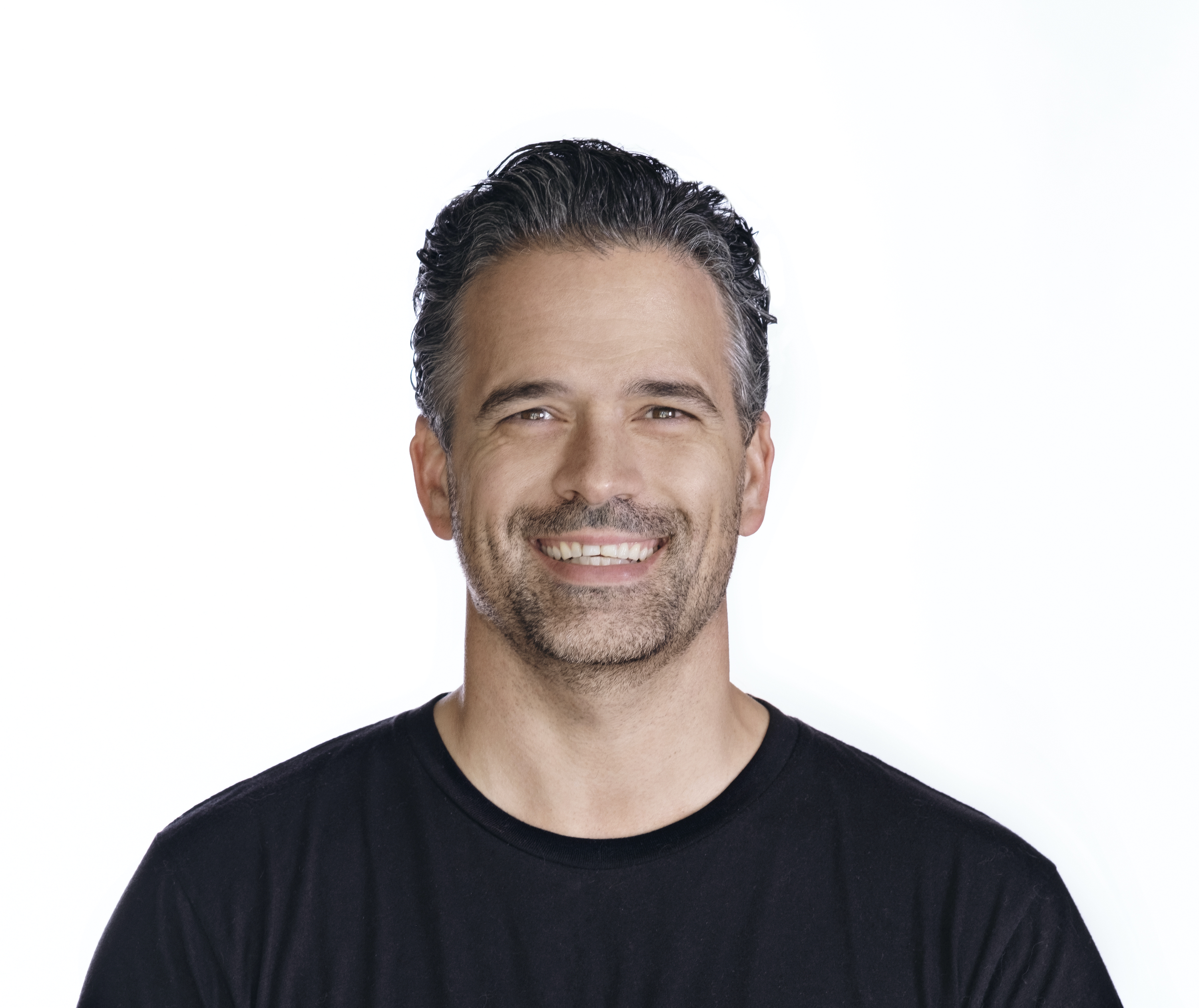How to Find Your Calling (and Actually Live It)

Jesse Wisnewski


Professional Development
We throw the word "calling" around a lot. Especially when it comes to work. When someone says they're "called" to a specific job or field, it sounds serious—spiritual, even. And for many Christians, it is.
But "calling" can also be confusing. Sometimes, it can even be paralyzing.
You've probably asked some version of it:
- What is my calling?
- How do I find it?
- What if I miss it?
Those are honest questions. Especially in certain life stages:
- You're a high school student dreaming about the future
- A college graduate staring down career decisions
- A midlife professional wondering, "Is this all there is?"
- Or someone just trying to make their work matter
The desire to live a meaningful life is good. The hunger for purpose is wired into us. But how we find our calling is where things often go sideways.
I'm sorry to disappoint, but you won't find a perfect formula in this post because there isn't one. However, it will give you a framework rooted in biblical wisdom, time-tested truths, and a few lessons I've learned along the way.
If you're feeling stuck, uncertain, or like you're waiting for a neon sign from heaven, I hope what follows will bring you clarity and confidence.
Let's start with where we usually go wrong.
What We Get Wrong About How to Find Your Calling
If you grew up in the church, you may have heard someone say, "I was called into ministry." That's not wrong per se. In fact, I've said something like that myself (I've previously served as a pastor). But it can make it sound like calling is mystical, like getting hit by a career lightning bolt from heaven.
The Bible uses "calling" differently. You're not primarily called to a job. You're called to a Person: Jesus Christ.
Here's what Scripture teaches:
- You are called to Christ (1 Cor. 1:9)
- You are called to follow Him (Matt. 4:19)
- You are called to live a holy life (1 Thess. 4:7)
That's the foundation. Everything else flows from it. Understanding your primary calling frees you from the pressure to "find the one perfect job."
God cares about your work. Deeply. But He hasn't hidden a specific career path that you must decode. Instead, He gives you freedom and responsibility to choose work that aligns with His moral will. You are not a pawn on a hidden chessboard. You are a redeemed image-bearer with agency and wisdom.
You are also called to live your whole life before God, not just your career. Your family, church, friendships, and daily responsibilities are all part of your response to His call. Vocation is about more than what you do for a paycheck. It's about how you live before the One who made you.
So the question isn't "What is my calling?" It's "Am I walking faithfully with the One who called me?"
Common Myths About Calling
If you want clarity about finding your calling, you must confront the lies. Here are six of the most common myths I've seen (and believed):
Myth 1: There's one perfect job for you
Truth: There isn't one single job out there you're destined to find. God's will isn't a tightrope. It's a wide path marked by wisdom, freedom, and faithfulness. You can thrive in many vocations that honor God and serve others.
Myth 2: Your calling equals your dream job
Truth: All work has dignity. Not just the kind that gives you goosebumps. Washing feet. Writing code. Changing diapers. Leading meetings. If it's done in faith, it matters.
Myth 3: If you miss your calling, you're doomed
Truth: You can't override God's will for your life. You're not that powerful. (See Westminster Confession 5.1) Your job isn't to find the needle in the haystack. It's to walk wisely and trust God with the outcome.
Myth 4: Passion alone is enough
Truth: Passion helps. But passion without proficiency or purpose can lead you into a ditch. Desire needs direction.
Myth 5: Calling should be clear and instant
Truth: Most people discover their work through time, testing, and feedback. Don't expect clarity without movement. Start with what you know and build from there.
Myth 6: The most "impactful" work is the most important
Truth: God sees faithfulness, not fame. Changing diapers can glorify Him as much as changing laws. In His kingdom, obscurity isn't failure—it's formation. We're called to live for an Audience of One, not the applause of many.
So if calling isn’t about chasing prestige or waiting for perfect clarity, what is it about? Rather than guessing at your future, it’s better to start where you are with wisdom, humility, and the right questions.That’s where this next framework can help.
The 4 P Framework for Finding Vocational Direction
So, how do you actually move forward?
Here's a framework I've used and shared with others. It's not magic, but it's solid, and it helps you ask the right questions.
1. Problem
God often uses the pain of this world to point us toward purpose.
We live in a world where things are not as they should be. Genesis 3 shows us how sin broke what God created good. Because of the Fall, work became harder, relationships fractured, and the ground resists us. But that same brokenness is also where many people discover their calling, as they step into needs, bring healing, or restore what's been lost.
Start by looking outward. What people or problems stir something in you? What needs do you resonate with? In Acts 17:16, Paul was deeply troubled by the idols in Athens. His grief led him to speak and serve, and that burden became a doorway into ministry.
Your calling isn't just about your preferences. It's about your response to what's wrong in the world. Romans 12:9–21 urges believers to abhor evil and cling to what is good. These are deeply vocational impulses, shaped by love, not ambition.
Questions to ask:
- What brokenness burdens you?
- Where do you want to make a difference?
2. Passion & Proficiency
Often, the place where you notice a problem is also the place where you come alive. God doesn't just point you toward brokenness. He often equips you to do something about it.
Maybe you feel a burden for kids who can't read well. Or perhaps you also love stories and have a gift for explaining things clearly. That's not an accident. Or you're good with systems and get frustrated when things are chaotic. That tension isn't just personal. It might be vocational.
James 1:17 reminds us that every good and perfect gift is from above. And 1 Corinthians 12:4–11 tells us the Spirit gives gifts for the common good. Whether you recognize them now or not, your strengths aren't just for you. They're part of how God works through you.
This part of the process takes humility. What comes naturally to you? What drains you? What do others see that you might not? Often, we discover our gifts by using them, not just analyzing them.
Questions to ask:
- What energizes you?
- What are you good at?
- What abilities and weaknesses do you bring?
3. People
If you've noticed a burden and started to see areas where you may be gifted, this is where others help confirm it. We don't discern calling in isolation. Romans 12:4–5 and Ephesians 4:25 remind us that we belong to one another in the body of Christ. That means your local church, mentors, and friends help you understand where you're needed and where you fit.
Sometimes others see in you what you can't see in yourself. Maybe they've already been affirming what burdens you or where you excel. Maybe they've said things like, "You're really good at that," or "You should consider this." These aren't throwaway comments. They may be breadcrumbs God uses to show you where He wants you.
Hebrews 13:17 calls us to honor our leaders. Their counsel matters. Proverbs 15:22 adds, "Without counsel plans fail, but with many advisers they succeed." Pay attention when people consistently ask for your help in a particular area. That may be a sign of stewardship, not coincidence.
Questions to ask:
- What do wise, godly people say about you?
- What does your community affirm?
4. Providence
This final piece helps ground the other three. It's one thing to feel a burden, recognize your gifts, and receive affirmation from others. But where has God actually placed you? What is already in motion around you?
Often, the best next step isn't hidden. It's right in front of you. Like Esther in Esther 4:14, maybe you're in your current place "for such a time as this." Psalm 37:23 says, "The steps of a man are established by the Lord, when he delights in his way." God works through open doors and closed ones. Sometimes, He uses ordinary circumstances to reveal extraordinary direction.
Providence calls us to pay attention to our responsibilities. What doors has God already opened? What people has He already entrusted to your care? What communities are you already a part of?
This is also where we consider our service in the church and community. What responsibilities has God already entrusted you? 1 Peter 4:10 reminds us to "use whatever gift you have received to serve others, as faithful stewards of God's grace in its various forms."
In the end, providence isn't just about where you might go. It's about where you already are. It's where burden, gifting, affirmation, and timing intersect.
Questions to ask:
- Where has God placed you right now?
- What responsibilities or opportunities are right in front of you?
A Word for Those in Transition
It's not uncommon to change jobs. Most people don't stay in the same role forever, and that's not a sign of failure. It's part of how work and calling unfold over a lifetime.
Your calling may change. And that's okay.
It's more normal than you might think. The average employee stays at a job for about 4.6 years. Millennials? Less than 3. The average S&P 500 company lasts only 15 years.
So if you're in transition, you're not failing. You're just living through the rhythm of how work tends to unfold.
For example, Moses went from prince to shepherd to prophet, and Paul went from persecutor to preacher to tentmaker. Callings shift, and seasons change. I've transitioned careers several times, including selling insurance, pastoral ministry, and sales and marketing.
Maybe you've lost your job, or you're wondering if it's time to pivot, or you just feel restless. You're not alone. God isn't surprised, and He hasn't checked out.
Here's what I've learned to do in those seasons:
- Don't panic. You're not behind. You're being shaped.
- Don't freeze. Take one wise step. Then another.
- Pray (James 1:5). God delights in giving wisdom.
- Ask questions. Seek counsel. Stay rooted in Scripture.
Remember: your calling is not limited to your career. It is expressed through your whole life—how you love, serve, lead, and grow through each season. Transitions aren't interruptions. They're invitations to trust God afresh.
God's guidance often comes through ordinary means: His Word, His people, and wise reflection. Not just mystical moments.
Walking Forward in Faith
So, what is your calling? And how do you find it?
Start with Christ. That’s your unshakable foundation.
Then, listen for the themes He’s already writing into your life—the burdens He’s placed on your heart, the gifts He’s given you, the people speaking truth into your story, and the opportunities already in front of you.
You don’t need a perfect plan. You need faithful steps.
Your deepest calling isn't to a career. It's to Christ.
Work matters. But it's not ultimate. What matters most is how you show up: with humility, excellence, and a desire to glorify God in whatever you do.
So take the pressure off. Stop waiting for lightning. Start walking in faith.
When you show up faithfully, over time, clarity comes. (Prov. 3:5–6) of discovering vocation: alignment between character, gifting, burden, and opportunity. Not a mystical blueprint. It’s discerned in community, revealed in practice, and anchored in grace.
Your calling is revealed as you live, not just when you plan.












